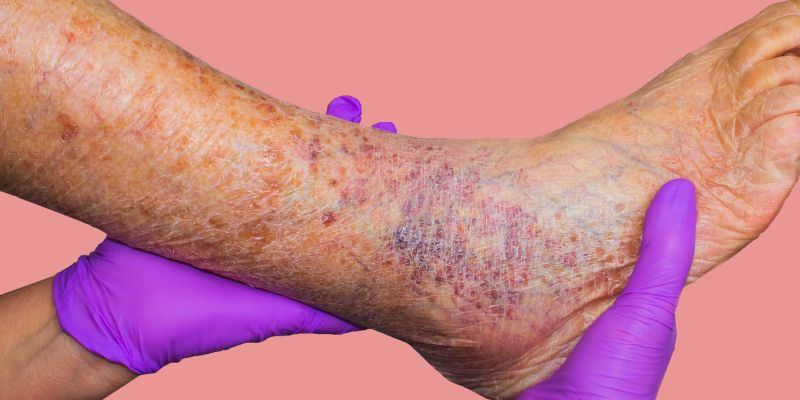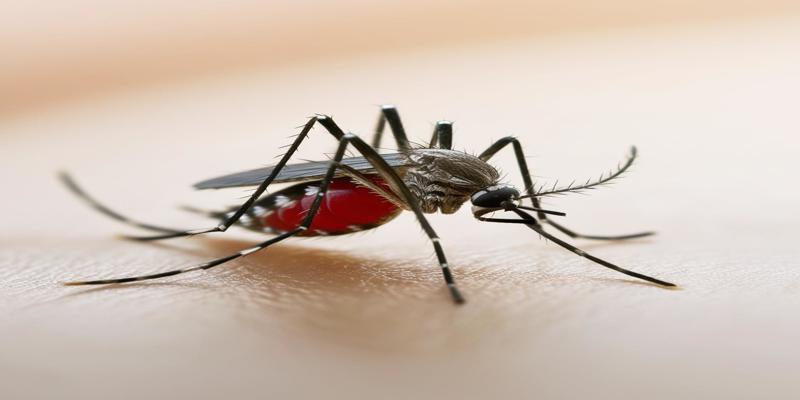Advertisement
Millions of people worldwide have allergy-induced asthma, most usually brought on by allergens like dust or pollen. This kind of asthma causes breathing trouble by combining allergic reactions with respiratory problems. Good management depends on an awareness of the causes and available treatment choices. It usually gets worse with triggers or during allergy season.
Coughing, wheezing, and dyspnea could be symptoms. Early diagnosis and tailored treatment can raise the standard of living. Find out more about asthma brought on by allergies and how best to control it.

Asthma caused by allergies results from allergens such as pollen or pet dander aggravating symptoms. Allergens aggravate the airways' irritation, therefore affecting breathing. It's a chronic illness combining asthma and allergies. Those having a family history of allergies are more likely to have this kind of asthma. Usually, symptoms start following contact with particular allergens. Among these include coughing, wheezing, and chest discomfort.
Another often-occurring sign is dyspnea. Many people experience similar symptoms in line with seasonal fluctuations. The condition can seriously affect daily life. Working or working out can be difficult. Avoiding allergies and controlling symptoms is important. Correct therapy depends on seeking medical guidance.
Allergens are the main culprit. Common triggers consist of pollen, mold, pet dander, and dust mites. Often aggravating asthma symptoms are seasonal allergens. For instance, spring and fall have more pollen. Year-round symptoms might be triggered by indoor allergens such as mold or dust. One also finds an influence on genetics. Your risk rises if allergies or asthma run in your household.
Environmental elements such as pollution can also be involved. Living in metropolitan regions with bad air quality could increase problems. A few foods may be triggers. Food allergies, however rare, can aggravate asthma attacks. Controlling the condition depends on one managing triggers. One can benefit by specifically identifying particular allergies through testing.
Symptoms range from moderate to severe. Among common symptoms are wheezing and a high-pitched whistling sound during breathing. Another complaint is regular coughing, particularly at night. Physical exercise or allergen exposure often sets up dyspnea. Another often occurring complaint is pain or stiffness in the chest, which results from irritated airways. Usually accompanying these symptoms is tiredness since breathing gets difficult.
Additionally, present could be a runny nose, itchy eyes, or skin rashes. Along with asthma, these point to an allergic reaction. Strong symptoms could cause an asthma attack. That is a medical emergency needing a quick response. Early indicators help avoid complications. See a doctor always for a correct diagnosis and treatment advice.
Determining allergy-induced asthma requires several steps. Doctors initially review your medical history, looking for information on symptoms and possible triggers. They also consider a family history of asthma or allergies. PFTs, or pulmonary function tests, evaluate your lung capacity. These diagnostics point to respiratory trouble. One often used PFT to track airflow is spirometry. It guides the degree of asthma severity.
Finding triggers calls for the help of allergy tests. Skin prick testing exposes you to very minute allergens. Blood testing looks for certain antibodies linked to allergies. Both techniques assist in identifying the reason for your symptoms. The right diagnosis guarantees appropriate treatment. It is advisable to discuss your symptoms with a doctor carefully. Early diagnosis facilitates proper management of the illness.

Left uncontrolled, allergy-induced asthma might cause major problems. Over time, chronic inflammation wears down lung tissues, lowering lung capacity and complicating breathing. Repeated asthma episodes can compromise the respiratory system, raising the chance of serious illnesses such as chronic obstructive pulmonary disease (COPD). Asthma under poor control might also restrict physical activity.
Furthermore, influence can be mental health. Anxiety or stress could result from fear of attacks and continuous symptom control. Dealing with long-term impacts calls for careful attention. Maintaining respiratory health depends critically on following treatment programs and avoiding triggers.
Treatment mostly aims to control symptoms and stop attacks. One often-used medicine is an inhaled one. When asthma strikes, rescue inhalers offer rapid relief. Everyday use of controller inhalers helps to lower inflammation. Medications for allergies can help. Antihistamines stop allergic responses. Decongestants treat allergic-caused nasal congestion. In extreme cases, allergy injections or immunotherapy may be advised. These shots progressively lower allergic sensitivity.
Moreover, lifestyle adjustments are crucial. Managing symptoms comes mostly from avoiding triggers. Cut indoor allergies with air purifiers. Routinely wash bedding to eliminate dust mites. Correct therapy greatly increases the quality of life.
Here are some facts about allergy-induced asthma:
Knowing these facts will enable patients and others who look after them to control their condition better.
The first step in prevention is spotting and avoiding triggers. Shut windows in heavy pollen seasons. Cut indoor allergens using air cleaners. Frequent cleaning eliminates mold and dust. Still, another benefit is keeping a good lifestyle. Though it should be done carefully, exercise enhances lung capacity. Steer clear of outdoor exercise in allergy season. A balanced diet boosts your immune system.
One must pay close attention to symptoms. See early warning indicators of an asthma attack. Always pack a rescue inhaler. See your doctor often for therapy plan updates. These precautions help avoid issues.
A treatable but chronic illness, allergic-induced asthma calls for attention and care. The first steps are knowing its causes, identifying symptoms, and avoiding triggers. Your quality of life can be much enhanced by changing your lifestyle and using recommended medicine, including inhalers. Frequent visits to a healthcare professional help to control your disease and avoid problems. Effective management depends critically on early diagnosis and tailored treatment approaches. Being proactive helps you to stay healthy and less affect asthma in your daily life. Control of allergy-induced asthma guarantees improved breathing and a more active lifestyle.
Advertisement

By Noa Ensign/Nov 08, 2024

By Gabrielle Bennett /Jan 14, 2025

By Aldrich Acheson/Mar 17, 2025

By Celia Shatzman/Mar 18, 2025

By Gabrielle Bennett /Mar 16, 2025

By Georgia Vincent/Mar 17, 2025

By Nancy Miller/Nov 09, 2024

By Sid Leonard/Mar 17, 2025

By Mason Garvey/Mar 16, 2025

By Martina Wlison/Mar 18, 2025

By Noa Ensign/Mar 18, 2025

By Maurice Oliver/Mar 18, 2025